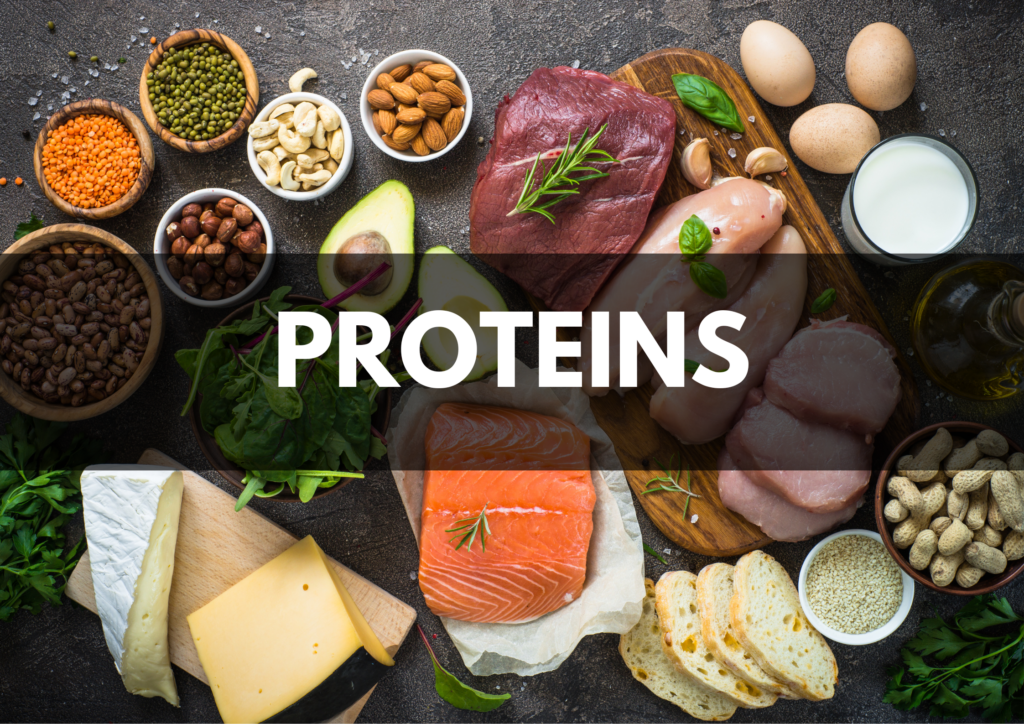I recently worked with a high school athlete who wanted to gain weight and muscle but had nut and pea protein allergies. Finding allergy-friendly foods like protein powders, bars, or shakes can be tricky since many include pea protein.
For him, the challenge was manageable because those were his only allergies. But what if you’re allergic to all the top 9 allergens and pea protein? It might feel overwhelming, but don’t worry—this guide will help you explore allergy-friendly protein options that work for you!
Let’s start with some of the easiest and most common choices.
Meat and Poultry:
For individuals who can consume animal products, but are allergic to common allergens like milk, eggs, fish, and shellfish, meat and poultry are excellent sources of allergy-friendly protein:
- Chicken: Chicken is versatile, widely available, and provides lean protein. Grill, bake, or sauté it for a quick meal.
- Turkey: Another lean allergy-friendly protein, turkey can be enjoyed in various forms, from ground turkey in burgers to roasted turkey breast.
- Beef: Lean cuts of beef, like sirloin or tenderloin, offer a hearty dose of protein. Use them in stir-fries, stews, or tacos.
- Pork: Pork tenderloin and loin chops are lean cuts that offer protein and can be prepared in numerous ways, including grilling, roasting, or braising.
Plant-Based Allergy-Friendly Protein Options:
Now let’s explore allergy-friendly plant-based protein options. You might be surprised at how many plant-based allergy-friendly protein options are available.
Legumes and Seeds:
- Legumes: Beans and lentils are rich in protein and versatile in cooking. Peas are a legume, so if you have a pea protein allergy, be sure to check if you can safely consume other legumes. Just because you’re allergic to one doesn’t mean you’re allergic to all.
- Quinoa: A complete protein, quinoa is a great allergy-friendly protein for those avoiding animal products. It’s a staple in many households as a versatile, plant-based protein. I just made a delicious 3-ingredient dessert with quinoa. Check it out!
- Chia Seeds: Packed with protein, chia seeds can be added to smoothies, oatmeal, or used as an egg substitute in baking. Chia seed pudding is a common recommendation for those looking to boost protein intake or enjoy a healthier breakfast.
- Hemp Seeds: A complete protein, hemp seeds can be sprinkled on salads, yogurt, oatmeal, or blended into smoothies. They have a delicious nutty flavor and are a great allergy-friendly protein option.
- Pumpkin Seeds: Pumpkin seeds pack 10g of protein per ¼ cup, offering even more protein than nuts.
Allergy-Friendly Grains:
Individuals allergic to wheat can explore alternative grains that offer protein and nutrients. Some options include:
- Buckwheat: Despite its name, buckwheat is not related to wheat and is an excellent source of protein.
- Amaranth: This gluten-free grain is rich in protein. Cook it like rice or add it to your baking recipes.
- Millet: This nutritious grain can be cooked as a side dish or used in gluten-free baking recipes. It isn’t the easiest grain to find, but specialty stores will carry it.
Allergy-Friendly Seed Butters:
- Sunflower Seed Butter: Made from roasted sunflower seeds, this butter is a tasty alternative to peanut butter.
- Pumpkin Seed Butter: Rich in protein and minerals, pumpkin seed butter is perfect for spreading on toast or incorporating into recipes.
- Soy-Free Tofu: Made from chickpeas, fava beans, or other legumes, soy-free tofu is a great alternative for those avoiding soy.
Additional Allergy-Friendly Protein Options:
- Jackfruit: When cooked, jackfruit has a texture similar to pulled pork, making it an ideal option for plant-based eaters.
- Coconut Milk Cheese: This creamy, dairy-free cheese is perfect for adding to dishes like burgers or nachos.
- Allergy-Friendly Protein Powder: For those looking for a convenient source of protein, allergy-friendly protein powder options like hemp protein, brown rice protein, and sunflower protein are great choices. Be sure to check labels for allergens and facilities, but these powders can be a helpful addition to shakes or smoothies.
You don’t have to sacrifice protein or nutrition when living with allergies to the top 9 allergens and peas. By exploring alternative protein sources such as meat, poultry, wheat-free grains, legumes, seeds, and seed butters, individuals can enjoy a diverse and protein-rich diet while managing their allergies. As always, it’s essential to read labels carefully. With the right knowledge and resources, navigating protein options can be both manageable and delicious.
BONUS: Homemade allergy-friendly protein powder recipe (Top 9 allergen free AND pea protein free!)
- 1 cup hemp seeds
- 1/2 cup chia seeds
- 1/2 cup flax seeds
- 1/4 cup pumpkin seeds
Combine in a blender. Store in an airtight container and keep it in the refrigerator so it will last longer.
If you’re looking for more inspiration for allergy-friendly foods and protein-rich meals, check out my cookbook! Packed with delicious, allergy-friendly recipes, it’s the perfect guide to making your meals both safe and satisfying. Grab your copy today!

